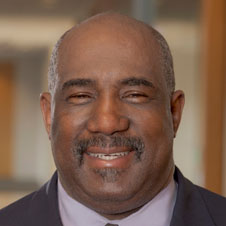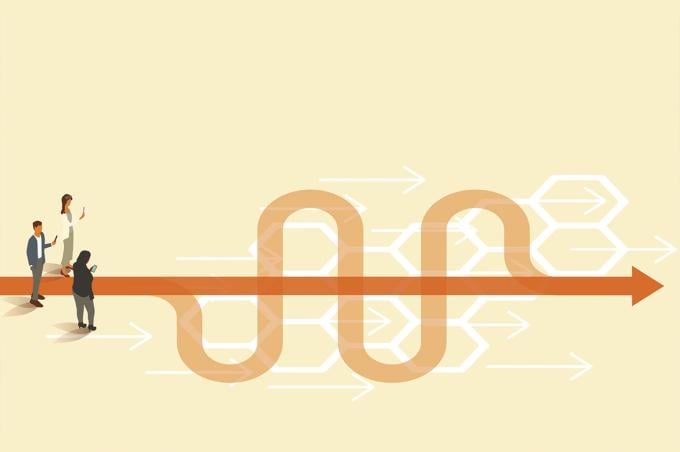Elite athletes have talked about their mental health and put their well-being ahead of their sport. In the airline industry, there is less shame in a pilot’s taking a day off if they are not on their “A game.”
Medicine has yet to fully catch up to that line of thinking—but it needs to, according to Willie Underwood III, MD, MSc, MPH, the immediate past chair of the AMA Board of Trustees. He joined family and sports medicine physician Alex McDonald, MD, for a “PermanenteDocs Chat” episode, “Addressing the mental health elephant in the room.”
That is why the AMA is taking steps to help physicians and the medical system remove stigma and provide protections for physicians to take care of their own mental well-being, which, in turn, allows them to best take care of their patients.
“How do I create a system in such a way that when Dr. McDonald and Dr. Underwood show up they are rested, they are strong, they are ready and they are prepared … and they are their best self so they can provide the best opportunity for our patients to have the greatest outcomes?” he said on the podcast.
The two physicians also discussed the unique challenges physicians face when seeking mental health support, how the AMA and others are working to overcome the mental health stigma in the medical community, what is being done to promote changes for a better culture of wellness and resources for medical professionals in need.
As the leader in physician well-being, the AMA is reducing physician burnout by removing administrative burdens and providing real-world solutions to help doctors rediscover the Joy in Medicine™.
Changing the external
One of the big things that needs to change is not penalizing physicians and other health professionals for seeking help or taking time off for their mental well-being, Dr. Underwood said.
For years, state medical boards, credentialing bodies and others have asked physicians questions about treatment they have received in the past.
“If you have problems, then you have to explain that for the rest of your career—on credentialing forms, state forms. Every time you turn, someone is asking you: ‘So what happened in 1987? … In 1987, you know you had this issue and so therefore you’re unemployable, therefore we have to monitor you, therefore we have we have concerns,’” Dr. Underwood said.
The Joint Commission, the Federation State Medical Boards (FSMB) and a growing number of national organizations do not support or require that states, hospitals, insurers or others ask about a physician’s mental health history. And there has been progress in moving away from these questions that prevent physicians from seeking help when they need it.
More than half of state medical boards have changed their licensing applications, including Minnesota. Some health systems have also changed their credentialing questions to support physician well-being. For example, Henry Ford Health—a member of the AMA Health System program—updated its credentialing application to focus on current impairment.
The AMA has worked with more than 100 state medical boards, hospitals and health systems to advocate for and recommend changes to remove stigmatizing language from applications. Dr. Underwood said more needs to be done to communicate the changes to physicians so they become more likely to seek help.
Despite having higher rates of depression, burnout and suicide than the general population, research has shown that about 40% of physicians would be reluctant to seek mental health care because they would be concerned about the repercussions to their medical licensure.
Changing the culture
The culture of medicine itself is another big hurdle, Dr. Underwood said, with physicians too often encouraged to see themselves as giants who put others ahead of themselves.
“To say that ‘I’m not really sure,’ to say, ‘I don’t feel well’—that’s physically well or mentally well or spiritually well—is a sign of weakness. If you are a physician, we don’t call in sick. We call in dead,” Dr. Underwood said. If a physician does take time off, they face questions such as: “‘What do mean you are sick? ... You have 40 people here in the clinic waiting on you. You’ve got someone on the operating room table in 20 minutes,’” Dr. Underwood said. “You better be here and ready to roll and you better bring your best game each and every time.”
That needs to change. The AMA has tools to support physician well-being and it is helping to foster a culture that prioritizes well-being through programs like the AMA Joy in Medicine™ Health System Recognition Program which recognizes organizations dedicated to preserving physician well-being through proven efforts to reduce system-level drivers of work-related burnout.
The AMA also supports, among others, efforts like the latest from the Dr. Lorna Breen Heroes’ Foundation, which partnered with the North Carolina Clinician and Physician Retention and Well-being Consortium to create ALL IN: Caring for North Carolina’s Caregivers. The program aims to help hospitals and health systems redesign workplace environments to help team members feel valued and supported while creating the best environments to deliver safe, quality patient care.





